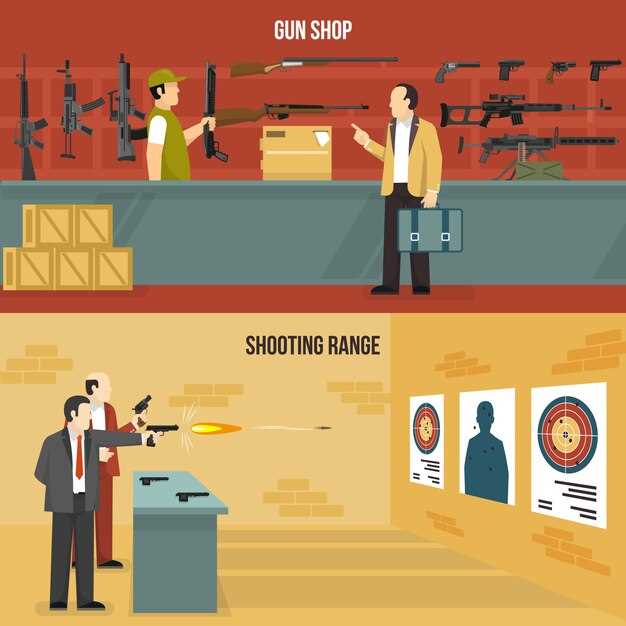Shotguns vs Rifles – What Should You Use?


When it comes to selecting a firearm, enthusiasts often find themselves at a crossroads: should they choose a shotgun or a rifle? Each type of firearm has its unique advantages, disadvantages, and intended uses that can significantly impact your decision. Understanding these differences is crucial in order to choose the right weapon for your specific needs.
Shotguns are renowned for their versatility and ease of use. They excel in close-quarter scenarios, making them the go-to choice for home defense and hunting small game. With a wide variety of ammunition types available, including birdshot, buckshot, and slugs, shotguns can be effective in various situations. Additionally, their wider spread makes them forgiving for novice shooters who may struggle with precise aiming.
On the other hand, rifles are designed for accuracy and long-range performance. They tend to have a more extended effective range and are ideal for target shooting, hunting larger game, and situations that require precision. Rifles generally offer better ballistic performance, meaning they can maintain velocity and energy over greater distances compared to shotguns.
Choosing between a shotgun and a rifle ultimately depends on your intended use. Whether you prioritize versatility or accuracy will guide you in making a decision that best suits your shooting needs.
Understanding the Key Differences in Functionality and Ballistics

When choosing between shotguns and rifles, it is essential to grasp the fundamental differences in functionality and ballistics. Rifles are designed for precision shooting at longer distances, utilizing rifled barrels that impart spin on the bullet for improved accuracy. This spin stabilizes the projectile, allowing it to maintain a straight trajectory over greater distances, making rifles ideal for hunting larger game or engaging targets at ranges beyond 100 yards.
In contrast, shotguns are more versatile for close-quarters scenarios, utilizing smoothbore barrels that enable the firing of multiple projectiles (shot) or a single slug. The dispersion of shot allows for a wider target area, compensating for aiming errors at shorter distances, typically within 40 yards. This characteristic makes shotguns well-suited for home defense and hunting birds or small game.
From a ballistic perspective, rifle cartridges deliver higher velocity and energy upon impact due to their streamlined design and smaller diameter. This results in greater penetration and lethality, particularly with high-velocity rounds. Conversely, shotgun shells, especially those filled with shot, create a spread pattern that significantly reduces the energy delivered to any single target beyond a certain distance, making them less effective for long-range engagements.
Understanding these differences is crucial when making an informed decision based on your specific application, whether it’s hunting, sport shooting, or self-defense. The choice between rifles and shotguns ultimately hinges on the intended use, desired range, and type of target, emphasizing the need to consider each firearm’s unique characteristics carefully.
Identifying Your Primary Use Case: Hunting, Home Defense, or Sport Shooting
When it comes to firearms, understanding your primary use case is crucial in deciding whether to opt for shotguns or rifles. Each category serves distinct purposes, and recognizing your specific needs will guide you in making an informed choice.
For hunting, rifles are often preferred due to their accuracy and range. They are ideal for tracking and taking down game from a distance, ensuring a clean kill. The type of rifle you choose may vary depending on the type of game you intend to hunt–larger calibers for bigger animals and smaller ones for birds or small game. The versatility of rifles also allows for various ammunition types, giving hunters the flexibility to tailor their equipment to specific situations.
In terms of home defense, the choice can be more nuanced. Rifles provide superior accuracy, which can be essential in high-pressure situations. However, the use of rifles indoors requires consideration of over-penetration and collateral damage, as bullets can travel through walls. Many homeowners may opt for shotguns due to their wider spread, which can be beneficial in close-quarters scenarios, but properly selected rifles can also serve effectively if used responsibly.
For sport shooting, many enthusiasts gravitate towards rifles for their precision and the variety of shooting applications available, such as long-range competitions or tactical shooting events. Rifles come in various styles and calibers, allowing shooters to find a model that best fits their preferences and competitive goals. Additionally, sport shooting may offer opportunities to develop skills that can translate to other uses, such as hunting or self-defense.
Ultimately, the decision between shotguns and rifles hinges on understanding your primary needs–whether they pertain to hunting efficiency, home protection capabilities, or sport shooting prowess. Each firearm type possesses unique advantages, and aligning your choice with your intended use will significantly enhance your shooting experience.
Evaluating Budget and Maintenance Considerations for Long-Term Use

When choosing between shotguns and rifles, one of the crucial factors to consider is your budget. Shotguns usually come at a lower price point, making them appealing for those who are new to firearms or have limited funds. However, it is vital to account for initial costs as well as ongoing expenses such as ammunition and accessories.
Ammunition for shotguns can sometimes be less expensive than that for rifles, particularly when considering practice rounds. Buying in bulk can yield additional savings. Nevertheless, the precise type of shotgun you choose may influence your overall budget, especially if you’re opting for specialized ammunition or accessories like various chokes and sights.
Maintenance is another important aspect. Shotguns generally require less frequent cleaning than rifles, as their simpler design and the fewer moving parts contribute to easier upkeep. This can translate to lower long-term maintenance costs. However, it is imperative to remain diligent about regular care to ensure reliability and longevity.
On the other hand, rifles may demand more investment in cleaning tools and products due to their complex mechanisms. Additionally, they may require more specialized attention when it comes to maintenance, which can impact your budget over time.
Ultimately, assessing your long-term needs, including potential upgrades and recurring expenses, is essential for making an informed decision. Whether you choose a shotgun or a rifle, understanding the implications on your budget and maintenance commitments will help ensure you make a choice that is sustainable for years to come.




